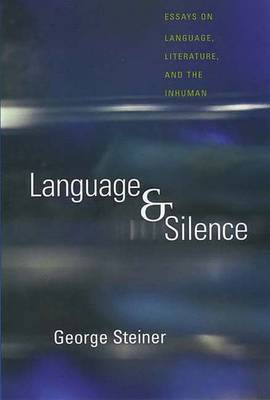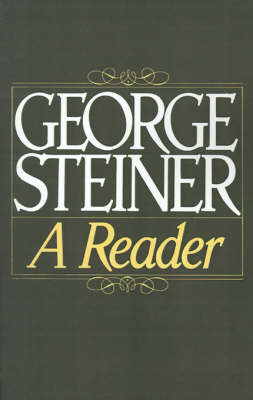Pelican S.
2 total works
How do we evaluate the power and utility of language when it has been made to articulate falsehoods in certain totalitarian regimes or has been charged with vulgarity and imprecision in a mass-consumer democracy? How will language react to the increasingly urgent claims of more exact speech such as mathematics and symbolic notation? These are some of the questions Steiner addresses in this elegantly written book, first published in 1967 to international acclaim.
As an incisive and provocative critic of literature, language, and culture, George Steiner has acquired an international reputation and a devoted following. "He scatters bright ideas everywhere," writes The New York Times Book Review, "and they are sure to be picked up." This volume presents a rich sampling of Steiner's ideas, including selections from his seminal books The Death of Tragedy, After Babel, Tolstoy or Dostoevsky,
and Language and Science. Aside from pointing to work that lies ahead, this anthology offers a rich retrospective of the intellectual ground Steiner has already covered. Whether discussing Marxist literary theory, the significance of Tolstoy, or the problems of treating sexual material in literature, Steiner's writings give us the
pleasure of watching an astute and nimble mind constantly at work.
and Language and Science. Aside from pointing to work that lies ahead, this anthology offers a rich retrospective of the intellectual ground Steiner has already covered. Whether discussing Marxist literary theory, the significance of Tolstoy, or the problems of treating sexual material in literature, Steiner's writings give us the
pleasure of watching an astute and nimble mind constantly at work.

